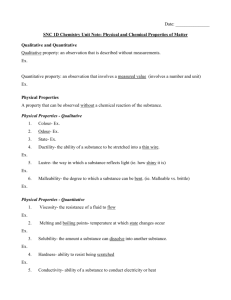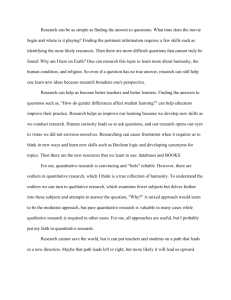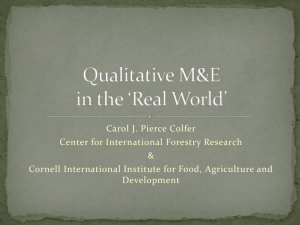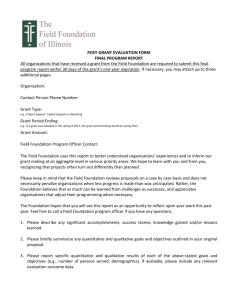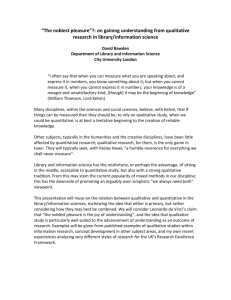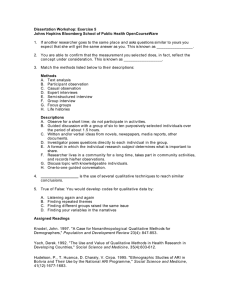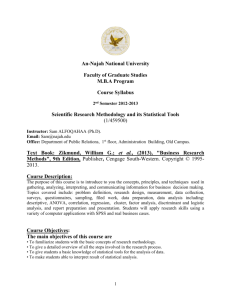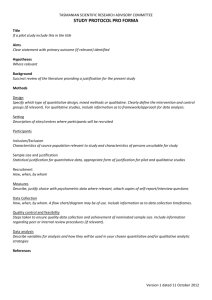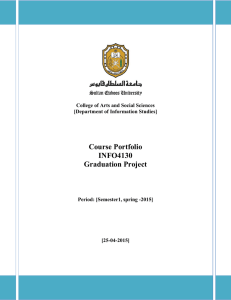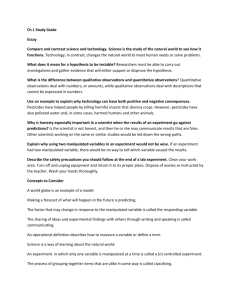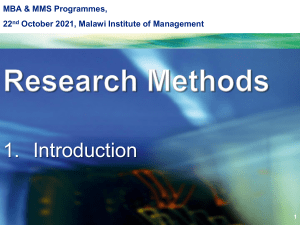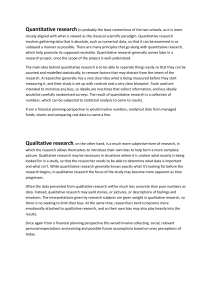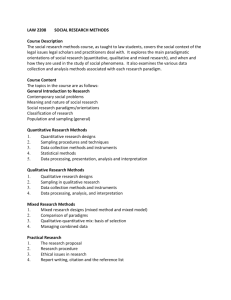6.9 Knowledge Is Power Terminology List
advertisement
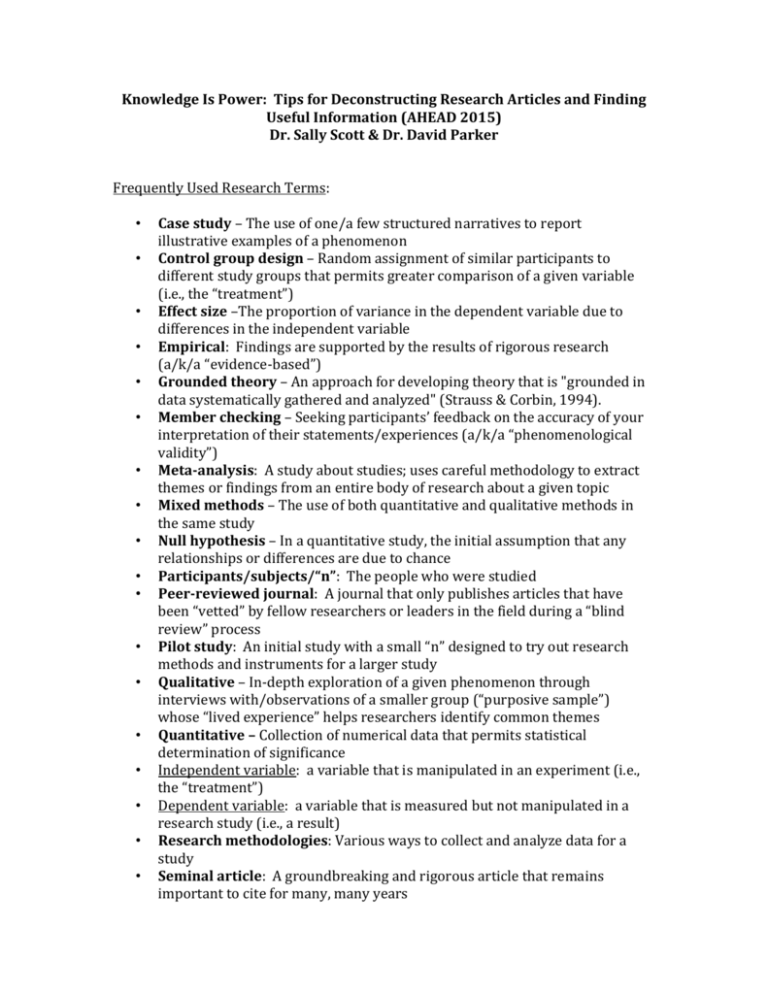
Knowledge Is Power: Tips for Deconstructing Research Articles and Finding Useful Information (AHEAD 2015) Dr. Sally Scott & Dr. David Parker Frequently Used Research Terms: • • • • • • • • • • • • • • • • • • Case study – The use of one/a few structured narratives to report illustrative examples of a phenomenon Control group design – Random assignment of similar participants to different study groups that permits greater comparison of a given variable (i.e., the “treatment”) Effect size –The proportion of variance in the dependent variable due to differences in the independent variable Empirical: Findings are supported by the results of rigorous research (a/k/a “evidence-based”) Grounded theory – An approach for developing theory that is "grounded in data systematically gathered and analyzed" (Strauss & Corbin, 1994). Member checking – Seeking participants’ feedback on the accuracy of your interpretation of their statements/experiences (a/k/a “phenomenological validity”) Meta-analysis: A study about studies; uses careful methodology to extract themes or findings from an entire body of research about a given topic Mixed methods – The use of both quantitative and qualitative methods in the same study Null hypothesis – In a quantitative study, the initial assumption that any relationships or differences are due to chance Participants/subjects/“n”: The people who were studied Peer-reviewed journal: A journal that only publishes articles that have been “vetted” by fellow researchers or leaders in the field during a “blind review” process Pilot study: An initial study with a small “n” designed to try out research methods and instruments for a larger study Qualitative – In-depth exploration of a given phenomenon through interviews with/observations of a smaller group (“purposive sample”) whose “lived experience” helps researchers identify common themes Quantitative – Collection of numerical data that permits statistical determination of significance Independent variable: a variable that is manipulated in an experiment (i.e., the “treatment”) Dependent variable: a variable that is measured but not manipulated in a research study (i.e., a result) Research methodologies: Various ways to collect and analyze data for a study Seminal article: A groundbreaking and rigorous article that remains important to cite for many, many years • • • • Statistical significance – A term used to describe an observed difference or relationship among variables that is unlikely to be due to chance Replicate – Conducting a new study that closely follows an earlier study’s research design to determine if similar results will be found “Thick” descriptions – Reporting illustrative details from various sources (e.g., quotes, observations, descriptions of artifacts) to create a vivid depiction of a person, place, or event Triangulation – A process of using multiple perceptions to clarify meaning, verifying the repeatability of an observation or interpretation Sources: Authors (2010). Publication manual of the American Psychological Association (6th ed). Washington, D.C.: APA. Denzin, N.K., & Lincoln, Y.S. (2003). Strategies of qualitative inquiry (2nd ed.). Thousand Oaks, CA: Sage Publications. Harris, M.B. (1998). Basic statistics for behavioral science research. Needham Heights, MA: Allyn & Bacon. Miles, M.B., & Huberman, A.M. (1994). Qualitative data analysis. Thousand Oaks, CA: Sage Publications.







